Rare Voices: Brazil – Monique Barreto Galvao
Rare: Generally, how has COVID-19 affected your country relative to the rest of the world?
Monique Barreto Galvao: COVID arrived in Brazil at the end of February, around the same time as Carnival. In March, it spread all over Sao Paulo, which is the biggest city in the country. Now COVID is present in all 26 states, plus the federal district of Brazil, called Brasilia. As of today, April 24, officially we have almost 3,000 people that have died and 45,000 people have been infected.
But there is some good news. Brazil’s national public health system provides free healthcare. The subnational governments have been responding by placing restrictions on movement, etc. These actions are helping to flatten the curve. However, there is a lack of transparency at the national government level.
Rare: How has the pandemic changed daily life in the communities in which we work?
MBG: Our work is 100% is the state of Pará, which is in the north of the country. It’s the territory where 25% of small-scale fishers in Brazil are located. Unfortunately, the Governor of Pará got sick with COVID, so he has been ill.
Access to the communities is essentially closed. Basic transportation within the community and essential services are allowed, but not much else. The roads between communities are essentially shut down. It’s hard to sell fish. But we have learned that the communities are exchanging products. For example, they might say to each other, “You catch crabs, I catch fish, let’s exchange.” So the small-scale fisheries are helping ensure food security.
The government is also providing extra income for those who are deemed most vulnerable, which includes the communities where we work. The government is distributing 600 reales per month for next 3 months for about 40 million people. That’s around US $150 per month. This is meant to be enough to buy rice, beans, and hygiene products.
Rare: What are the main COVID-related challenges in these communities?
MBG: Like in many areas of Brazil, access to information in terms that people can understand is hard, so people struggle to understand the disease and how to prevent it. Access to food outside of the fish the fishers catch themselves is difficult. It is also difficult to find masks and hand sanitizer. But we’re also seeing the community coming together to help each other out. For instance, some women are making masks themselves.
Rare: How has COVID made Rare’s work with these communities challenging?
MBG: Our team cannot travel to the communities right now. Sometimes there is no internet connection and limited cell phone connection in most of the areas where we work. Sometimes we can communicate via WhatsApp, but not with all of (the communities). Earlier this year, we produced training materials, but we haven’t been able to distribute them. But we are prepared to scale as soon as we get back to the communities.
Rare: How is Rare helping these communities? Has Rare’s work in any way contributed to the resiliency of these communities?
MBG: We’ve worked hard to build and enhance local leadership. Local governors now know how to tap into larger municipalities and other government resources. In the past, these leaders didn’t have the capacity to ask for what they need. But now as a result of training and capacity building by Rare staff, it’s fair to say that they have learned to apply these skills to mobilize people to build movements.
Rare now is acting as a liaison between local governments and the private sector. A lot of
companies are stepping up to provide access to things like soap and food. But the local governments haven’t necessarily known how to tap into those resources. So we’re serving as a bridge. We’re also connecting these local leaders with other types of aid, other organizations that are more focused on aid. While we cannot go into the communities ourselves, we have partners and connections on the ground. So we are trying to use these connections to still maintain some sort of market so that people can access responsibly sourced fish.
Rare: What gives you hope?
MBG: Solidarity. That’s what gives me hope People are sharing and helping each other. The community is not waiting for an NGO to solve the problem around food security, especially. They’re taking action themselves. And I believe we all will get through this. So let’s stay safe. And cheers from Brazil.


